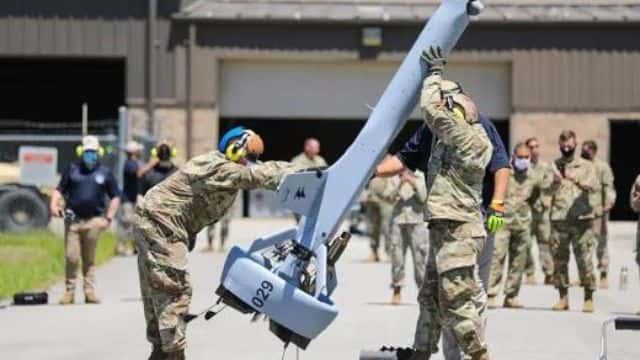For a very long time, federal contracting has been an extremely important part of the economy of the Greater Washington area.
However, our nation’s top five contracting giants are not located in the D.C. metropolitan area because the region manufactures fighter aircraft, tanks, or missiles. This is especially true on the defence side of the industry.
They are in this location so that they are physically close to their most important customer, the federal government.
When I was in Arlington, it seemed like a good moment to check in on one of the most important ways that the bigger military business interacts with the government, and that is lobbying.
These corporations are spending millions of dollars to exert their influence on issues such as defence policy, budgeting, taxation, and health care, to name just a few.
“The central decisions, the priorities, the allocation of resources against those priorities, the timing, and the regulatory process, both in terms of acquisition regulations and in terms of regulations of companies from regulatory agencies like the Federal Communications Commission or the Federal Trade Commission or the Securities and Exchange Commission — those take place here,” said David Berteau, president and CEO of the Professional Services Council, an Arlington-based organization.
The Professional Services Council is a trade association that represents businesses in the professional services industry.
“And so it is here where the general structure is established. Even while the actual carrying out of the plan is widely scattered across the United States and the rest of the world, the place to be if you want to have an impact on the overarching framework is in Washington.

These pages provide a more in-depth examination of what lobbying expenditures look like for the defence sector and include specifics for our locally based contractors. OpenSecrets.org, a non-profit organization based in Washington, D.C., is the source of these statistics.
OpenSecrets.org monitors data about lobbying, political donations, elections, and fundraising.
Lobbyists are required to report who their clients are, how much a client company spent on lobbying, what laws or issues were cited, and to which government agencies they lobbied.
While publicly accessible lobbying reports may not tell us whether a company lobbied for or against something, these reports do tell us who their clients are.
When one investigates the top lobbying goals of the defence industry, one should not be surprised to find that a significant amount of attention is being paid to the appropriations bills that actually support the operations of these businesses.
However, a few lobbying activities stand out as less clear examples of the corporation’s interests.
According to the data collected by OpenSecrets, one of the bills Boeing lobbied on the most in 2021 was Ethan’s Law, also known as H.R. 748.
This was a gun-control measure that required proper firearm storage, and it was named for Ethan Song, a resident of Guilford, Connecticut, who passed away at the age of 15 as the result of an accidental shooting.
At this point, at least 285 different organizations have participated in lobbying efforts in support of this measure, which was initially proposed in the House of Representatives of the United States in February 2021 but has not advanced since then.
An anti-cyberbullying measure known as David’s Law, also known as H.R. 133, was actively lobbied for by Raytheon in 2017.
This law was named after David Molak, who was 16 years old when he committed suicide as a result of being tormented online.
According to the data provided by OpenSecrets, 431 different groups campaigned for or against this measure before it was presented in the House in January 2021. According to the records kept by Congress, this legislation has not yet advanced.
Read more:-
- Need Some Additional Funds? What You Should Be Aware of Before Beginning a Side Business
- Jack Bucchioni is Free of Any Potential Conflicts of Interest.
- The Ramifications of Winning the Lottery in Arizona From a Legal Standpoint
Lockheed Martin, General Dynamics, Northrop Grumman, Raytheon, and Boeing are the biggest five aerospace and defence contractors in the country, and we have questioned all of them in the past few weeks about their lobbying activities and businesses. Greater Washington is home to all of these companies.
While the other parties in question did not reply to requests for comment, a spokeswoman for Boeing named Connor Greenwood provided the following statement in response to the inquiry: “Our lobbying spending will stay in line with past quarterly involvement.”
Take a look at their lobbying efforts and areas of concentration in 2021, including the organizations they targeted, the frequency of their outreach, and the local businesses they employed.


